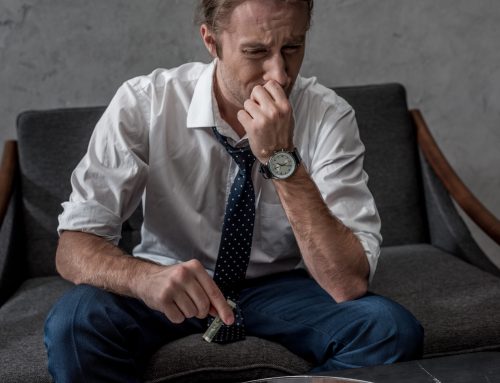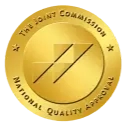Drug and Alcohol Detox Center
Opiates are known to be highly addictive when used in large quantities or taken too frequently. Misuse of opiates can lead to dependency or opioid use disorder, which could easily result in poor health or even death. Just like other addictive substances, opiates take control of your life leading to many health, social, and professional problems. Once you decide to stop using opiates, the first thing you’ll need to do is to undergo a safe and effective medical opiate detox under medical supervision to ensure that you get the best treatment and care from medical professionals who have experience in handling opiate withdrawal symptoms
What Are Opiates?
Opiates are a class of drugs extracted from the opium poppy plant. The most common types of opiates include the following:
- Opium which is the most common type of opiate. Opium is extracted directly from the poppy plant and can either be consumed orally as a liquid or smoked.
- Heroin is an opiate sold illegally on the streets. It is often taken by snorting, injecting, or smoking. Heroin is highly addictive and carries a high risk of fatal overdose.
- Morphine is another common opiate that is often used as a sedative before surgery or for pain relief. Taking large quantities of morphine or using it too often can lead to addiction.
- Codeine is an opiate found in painkillers as well as in cold and cough medicines.
Opiate Withdrawal Symptoms
If you suddenly stop taking opiates, you’ll experience either mild or severe withdrawal symptoms, depending on the amount of drug taken and the duration you have been using the drug.
Some of the mild withdrawal symptoms include the following:
- Irritability
- Agitation
- Anxiety
- Excessive sweating
- Dehydration
- Pain in the muscles
- Insomnia or loss of sleep
- Runny nose
- Watery eyes
As the level of your withdrawal peaks, you may experience more severe symptoms such as:
- Nausea and vomiting
- High fever accompanied by chills
- Diarrhea
- Increased heart rate
- Fluctuations in blood pressure
- Intense cravings for opiates
Opiate withdrawal is quite uncomfortable and difficult to manage by yourself. Chances are you’ll need the help of a professional to safely navigate through the challenges of opiate withdrawal.
This is why it is important to seek medical opiate detox after you decide to stop using drugs rather than trying to go at it on your own.
What Causes Opiate Withdrawal Symptoms?
Your body naturally becomes used to the effects of the drug after you use opiates for a long time or in large quantities.
As you become more accustomed to the drug, your body will need more and more of it to get the same effect. One of the dangers of developing this high level of tolerance is that you could easily end up overdosing.
If you are physically dependent on the drug, you’ll experience withdrawal symptoms when your body senses the absence of the drug in your system. Withdrawal symptoms are your body’s reactions to the lack of the toxins it is accustomed to.
Managing Opiate Withdrawal Symptoms
The best way to handle withdrawal symptoms is to undergo a medical opiate detox under the supervision of experienced professionals.
Once you decide to stop using, it is recommended to check into an opiate detox center where doctors and other health care professionals will help you manage and treat the unpleasant withdrawal symptoms.
There are a number of drugs and strategies used in the management and treatment of opiate withdrawal. For instance, you’ll need to drink plenty of water to avoid dehydration which accompanies opiate withdrawal.
Other strategies include relaxation techniques such as yoga and meditation. You’ll also need the support of your loved ones such as family and friends.
Some of the medications used to manage and treat withdrawal symptoms in opiate detox include the following:
- Clonidine helps to alleviate some of the symptoms of opiate withdrawal and make the experience more comfortable
- Methadone helps to reduce cravings and the effects of withdrawal
- Other symptom management drugs such as diazepam reduces anxiety and irritability, metoclopramide manages vomiting and nausea, and pain relief from ibuprofen and aspirin.

Opiate Detox Programs
It is important to undergo opiate detox under medical supervision so that your withdrawal symptoms can be managed safely and professionally.
You can choose to go cold turkey and handle the withdrawal symptoms at home by yourself but the experience can be quite painful and challenging.
There are basically two types of medical opiate detox treatment options that include inpatient and outpatient programs.
Inpatient Opiate Detox Program
An inpatient opiate detox program provides the safest option for people undergoing withdrawal symptoms.
One of the key advantages of an inpatient opiate detox program is that you’ll have medical supervision around the clock. You’ll also get the most effective treatment, medications, and care to ensure that your withdrawal is as comfortable as possible.
An inpatient program also provides a faster detox process. Professional healthcare providers also provide you with helpful information about drug abuse.
Most inpatient opiate detox facilities such as Atlanta Detox Center work with a majority of insurance companies to ensure that the process is as affordable to you as possible. The goal of an inpatient detox center is to help you go through the symptoms of withdrawal safely and recover within the shortest time possible.







